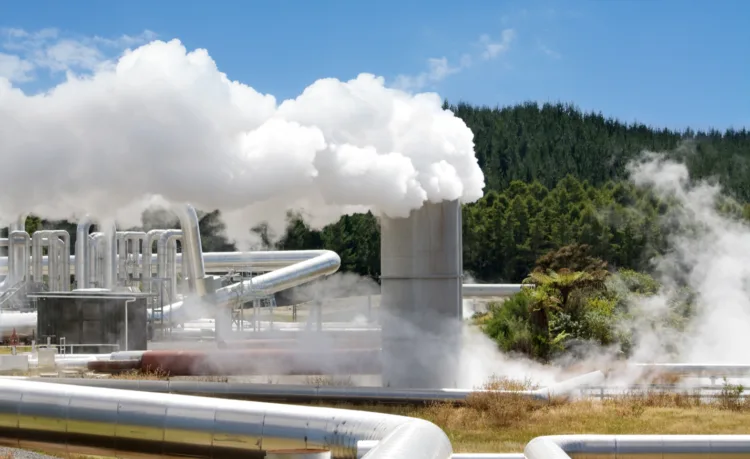In a significant stride towards advancing India’s renewable energy capabilities, the Singareni Collieries Company Limited (SCCL) has successfully commissioned a 20 kW pilot geothermal power plant in the Manuguru area of Bhadradri Kothagudem district, Telangana. This development marks a pivotal moment in the exploration and utilisation of geothermal energy within the country.
Geothermal energy, derived from the heat stored beneath the Earth’s surface, represents a promising and sustainable energy source. This technology harnesses the natural heat from the subsurface, which can be employed directly for heating and cooling purposes or converted into electricity. The newly commissioned pilot plant in Telangana utilises the closed-loop Binary Organic Rankine Cycle Process technology, a method that has been effectively demonstrated and is poised to pave the way for larger-scale geothermal projects in the future.
The Ministry of New and Renewable Energy (MNRE) is at the forefront of promoting indigenous technologies and manufacturing in the renewable energy sector through its Renewable Energy Research and Technology Development Programme (RE-RTD). Despite this commitment, there has been no specific allocation in the R&D budget for geothermal energy over the past five years. Instead, the Ministry of Coal stepped in, allocating Rs 2.42 crore for the establishment of the pilot plant in Telangana, as confirmed by a recent Press Information Bureau (PIB) release.
The Geological Survey of India (GSI) has been instrumental in identifying geothermal potential across the country. Through comprehensive studies conducted in 381 thermally anomalous areas, the GSI published the “Geothermal Atlas of India, 2022,” which estimates a potential of about 10,600 MW of geothermal power. This atlas serves as a crucial resource for future geothermal projects and underscores the untapped potential within India.
International collaborations have also been vital in advancing India’s geothermal energy capabilities. A memorandum of understanding (MoU) signed with Iceland in October 2007 identified geothermal energy as a key area of cooperation. Additionally, an MoU with Saudi Arabia signed in October 2019, and the Renewable Energy Technology Action Platform (RETAP) launched with the United States in August 2023, have further emphasised geothermal energy as a focal point of these partnerships.
Under the Renewable Energy Research and Technology Development Programme, the MNRE provides substantial financial support to promote geothermal energy R&D projects. Government and non-profit research organisations can receive up to 100 per cent financial support, while industry, startups, private institutes, entrepreneurs, and manufacturing units can receive up to 70 per cent support. This funding framework aims to foster innovation and development in the geothermal energy sector, encouraging a diverse range of stakeholders to contribute to India’s renewable energy landscape.
The successful commissioning of the pilot geothermal power plant in Telangana not only highlights the potential of geothermal energy in India but also signifies a step towards a more sustainable and diversified energy future. As the country continues to explore and invest in renewable energy sources, geothermal energy stands out as a promising and viable option for meeting the growing energy demands while reducing environmental impact.



















Comments